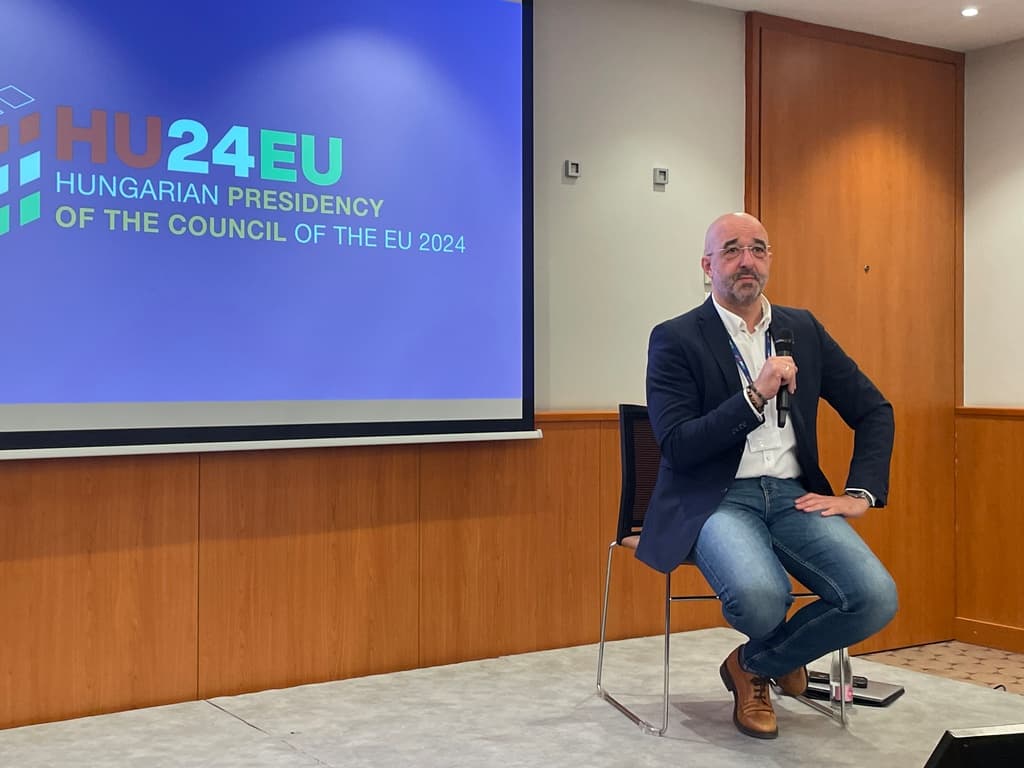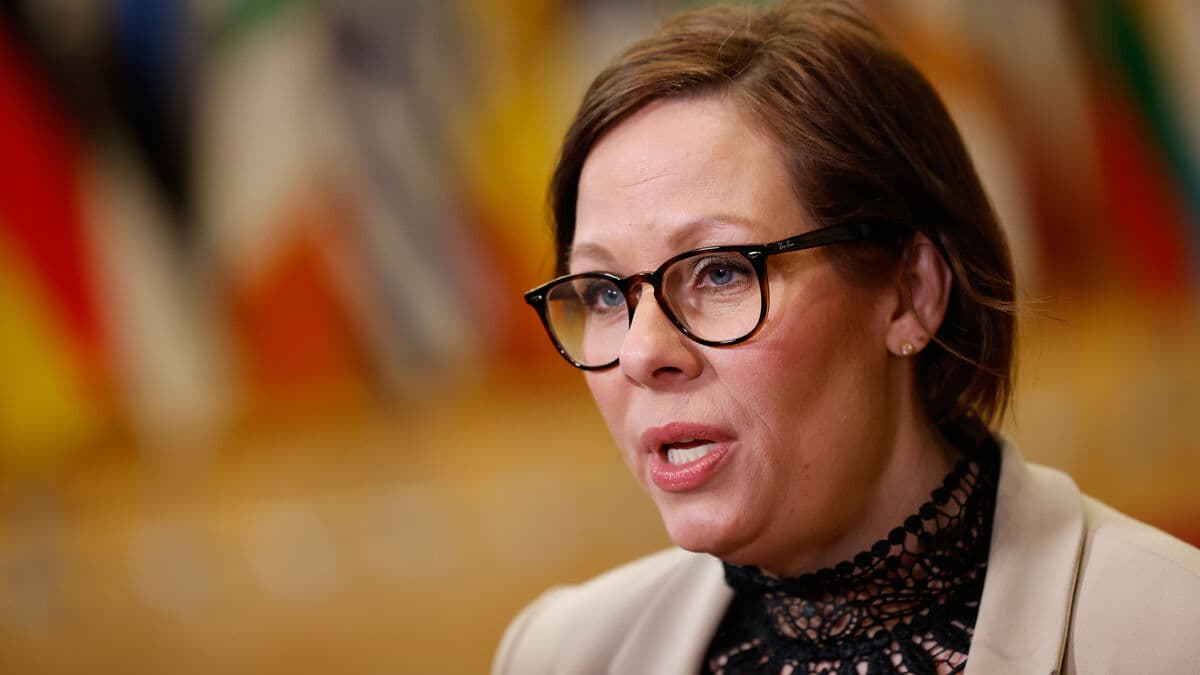We are not anti-European, Hungary assures when the EU's most stubborn member state is now acting as chairman of the Council of Ministers.
But they think differently about most things – and it will be noticed, promises the government.
Zoltán Kovács is the Hungarian government's international spokesman. His biting comments on social media are so notorious that even Hungary itself presents him as "the notorious Zoltán Kovács" when he receives TT and other Brussels correspondents in Budapest.
He is not conflict-averse.
Most of you are interested in finding something sensational. I know how it works, he says quickly.
And then he offers a series of punchy statements.
"Betrayal"
About the criticism of political influence on courts and other institutions:
There is no rule of law crisis in this country. It is a political weapon that has been invented.
About the allegations of corruption that have led the EU Commission to freeze billions in support:
Pure blackmail!
About the nomination of Ursula von der Leyen for another term as Commission President:
It is a betrayal that is taking place in the European institutions, Kovács fumes.
Offering alternatives?
Still, both he and EU Minister Janos Bóka promise to act neutrally and for the best of all during the country's half-year as chairman of the EU Council of Ministers.
Especially if it's about discussing asylum handling outside the EU's borders.
A large group of member states calls it an innovative solution, notes Bóka.
If there is a proposal, the Hungarian presidency will offer a platform for discussion.
The government emphasizes that they are not EU-skeptical, just skeptical of how the EU is run.
Criticism and comments are always made with the aim of improving quality. We offer a European alternative – not an alternative to the EU, claims the EU Minister.
Patriotic group
The idea is that the alternative will also be presented in a more concrete form in the new party group in the EU Parliament, Europe's Patriots, which Prime Minister Viktor Orbán hopes to launch with like-minded individuals.
It is likely that the patriots will even incorporate Marine Le Pen's French far-right National Rally.
Zoltán Kovács promises surprises.
Keep an eye out! We don't just have the votes, things will happen, says the government spokesman in Budapest.
Hungary is located in Central Europe, bordering Slovakia to the north, Austria and Slovenia to the west, Croatia and Serbia to the south, and Romania and Ukraine to the east.
The country is roughly the same size as Götaland and has nearly ten million inhabitants, of whom around two million live in the capital Budapest.
The President since last spring is Tamás Sulyok (born 1956). However, the political power lies mainly with Prime Minister Viktor Orbán (born 1963), who is currently the EU leader who has led his government the longest: since 2010.
Hungary became an independent kingdom in the Middle Ages, was long dominated by Turks and Austrians, but regained independence after World War I. During the Cold War, it belonged to the Eastern Bloc until the fall of communism in 1989. The country became a member of NATO in 1999 and the EU in 2004.






